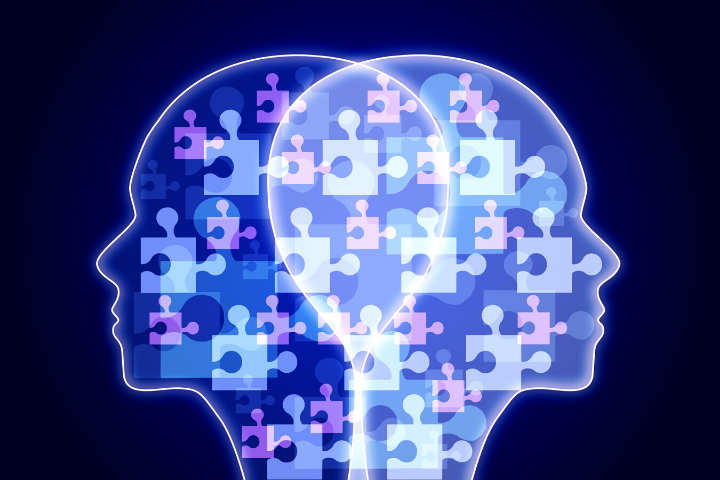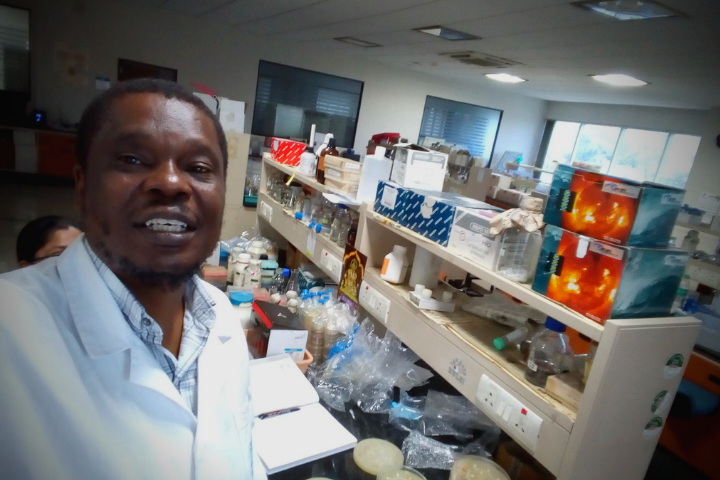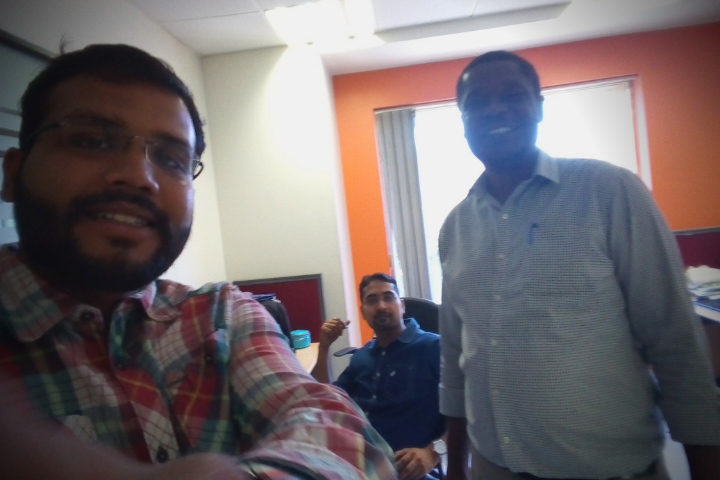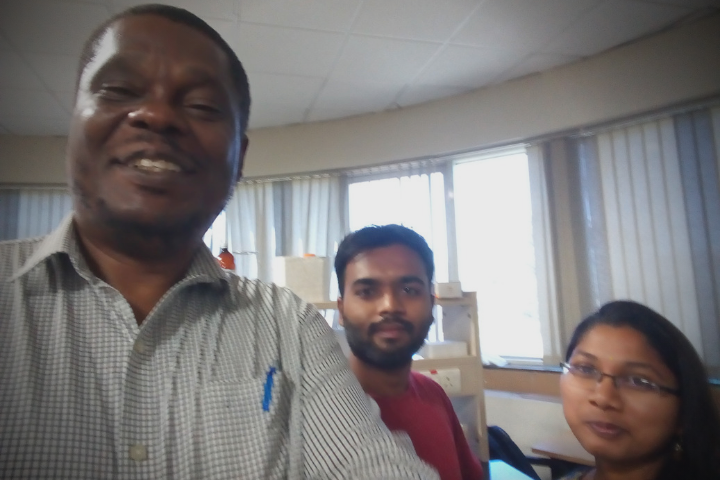Working together to solve problems shared by Africa and India
| 26 November, 2019 | Developers f1000 |

Researcher, Eric Ogola, applied for the Africa India Mobility Fund (AIMF). He shares what he learnt during his month in India working with Dr Yogesh Shouche, the director of the National Centre for Microbial Resources. He hopes that the collaborations and relationships formed will open up opportunities for future mutual research and better understanding of the problems shared by India and Africa. Here’s Eric’s story.
I applied for the AIMF grant in order to take advantage of the Indian Scientific advancement in a low-cost setting compared to doing science in other more developed countries. I was curious about the reported advancement in medical science, including diagnostics, within the Indian Sub-continent. I was seeking to strengthen my collaboration with the Indian Scientists for the advancement of my scientific career, while at the same time accessing newer molecular diagnostic techniques.

Cohort harmonization
The programme set out by AIMF enhances mutual collaborative research among developing countries experiencing similar health and demographic challenges. They also facilitate the fertilization of research ideas, leading to joint development of research funding proposals, cohort harmonization and generation of big-data.
India and Africa experience more or less similar health challenges. They are both developing economies with limited resources directed to solving health problems and the populations are rising in both countries. They are also experiencing similar re-surges of emerging and re-emerging conditions, including the current threat of antimicrobial resistance.
Poverty and weak health systems in developing countries predispose populations to antibiotic misuse and resistance. Therefore, both continents can gain from insights in tackling the global threat of antibiotic misuse and resistance through comparative analysis of surveillance data and reporting on outcomes of attempted solutions.

Building relationships
I was in India for one month. During this period, I had the opportunity to use and apply a number of modern diagnostic procedures and techniques, including Matrix Assisted Laser Desorption/Ionization Time-of-Flight Mass Spectrometry (MALDI-TOF-MS) and Next Generation Sequencing (NGS). These techniques will be valuable in our proposed molecular laboratory at Jaramogi Oginga Odinga University of Science and Technology, Africa. I will be able to manage my research work better, knowing that I have a back-up of advisors that I can compare notes with. I hope to invite my collaborators over to Africa so that they can appreciate what we do and offer proposals that we can try out here.
I worked closely with my advisor, Dr Yogesh Shouche, the director of the National Centre for Microbial Resources and gained the following skills: strategies for developing fundable grant proposals; setting goals and priorities for research, management of research funds; effective time and lab personnel management, and supervising students. I also learnt how to effectively manage my time and how to better manage the activities of the laboratory.
While working with Dr Yogesh Shouche, I suggested studying diverse microbial cultures in Africa and Asia to identify and compare gaps in knowledge and epidemiology, to find potential areas of collaboration between India and Kenya. My hope is that my collaborators will explore these opportunities for future mutual research and better understanding of our mutual problems.

Mutual learning
It is a good opportunity for mutual learning among scientists in third-world countries. They should consider visiting government institutions since they are well funded and have more scientists compared to private ones.
It would be nice to make initial contacts, e.g via attending a conference in India. This would make it easier to initiate collaborations and I think would help applicants receive letters of support needed for the grant application.
John Osei Sekyere, PhD, University of Pretoria, shares his experience of working with world renowned scientists and the skills he gained thanks to the opportunity provided by AIMF.